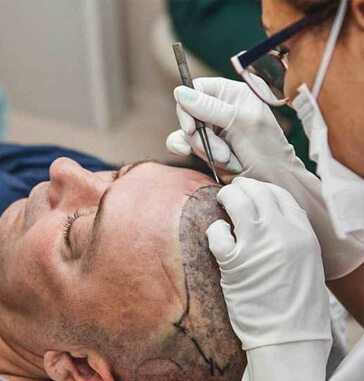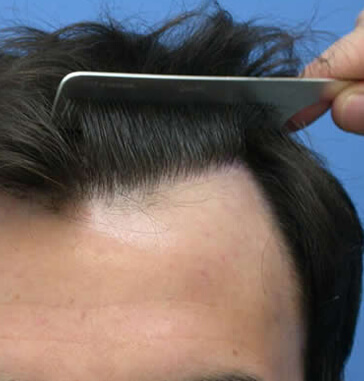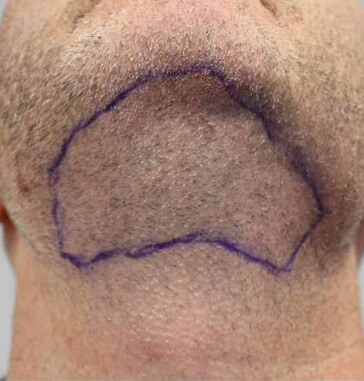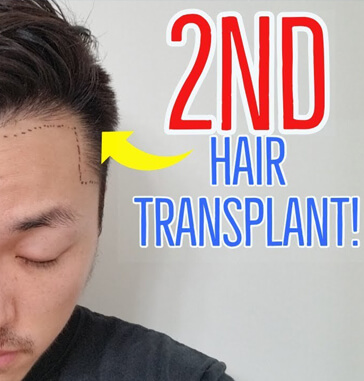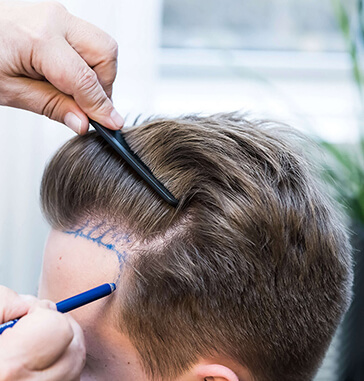What Is Genetic Hair Loss?
Hair loss may be caused by various factors such as chronic diseases, hormonal issues, autoimmune diseases, and vitamin and mineral deficiencies. Genetic hair loss is one of the several types of hair shedding, actually a very frequent one seen in both men and women. Also known as male-pattern hair loss and androgenetic alopecia, Genetic hair loss is a type of hair shedding that is caused by a combination of genetic predisposition and hormonal issues. This condition creates a specific hair loss pattern in men, with hair loss at the temples, hairline receding, and crown thinning.
Androgenetic alopecia, most of the time, affects the hair on the scalp; however, it may have a widespread effect throughout the body and cause other hairy areas such as legs and eyebrows to shed. Genetic hair loss cannot be stopped and cured with drug treatments; however, it is possible to slow it down, and the hair loss can be compensated with hair transplantation.
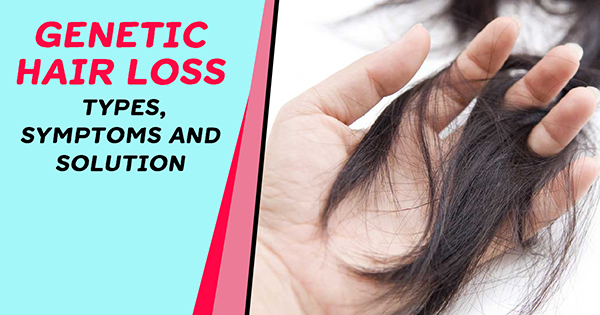
Causes Of Genetic Hair Loss
Genetic predisposition plays a crucial role in the emergence of genetic hair loss, as its name suggests. But a variety of genetic, environmental, and hormonal factors are responsible for this condition, and they are all considered to be the possible causes of hair loss. It is the androgens that contribute to this type of hair loss, particularly dihydrotestosterone ( DHT ). Androgens are male hormones needed for male sexual development, with additional functions in both males and females. One of these additional functions is hair growth regulation.
The hair goes through different phases till it finally sheds. There are three major phases of hair growth: anagen phase, catagen phase, and telogen phase. In the anagen phase, the hair keeps growing for 2-6 years; in the second phase, the hair stops growing for 2-3 weeks; and the third phase is the tolegen phase where the hair rests. There is one additional phase, exogen, where the hair growth completely stops, and the hair sheds. The exogen phase can last for 2 to 5 months until new hair grows in the place of the old done. When you are genetically susceptible to androgens, the anagen phase where the hair keeps growing is shorter than normal, causing a decrease in the number of hairs on the scalp.
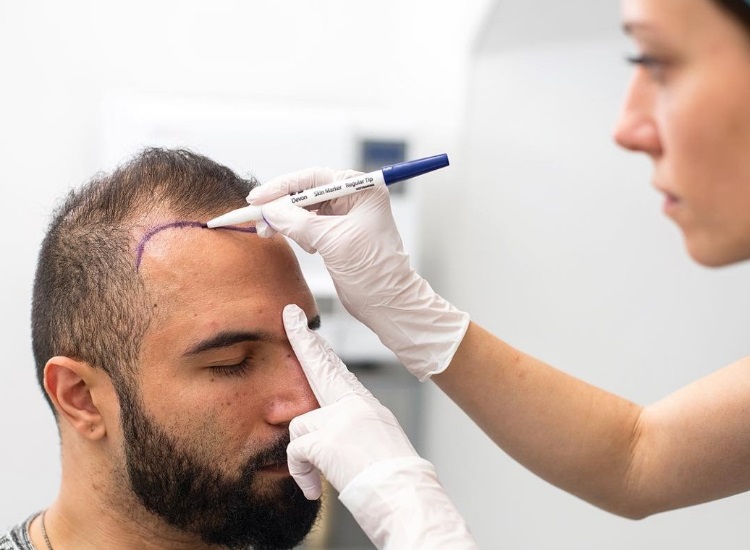
Symptoms Of Genetic Hair Loss
The most obvious symptom of genetic hair loss is noticeable hair loss and balding areas on the scalp. However, you should know that some amount of hair shedding is normal. You may see hair shedding of 100 strands every day. But if you lose the volume of your hair over time with no apparent causes such as birth or serious disease, you may suspect that you have some kind of hair loss issue.
Genetic hair loss has a specific type of hair loss pattern. Men and women will experience this pattern differently. Men will first lose hair and see hair thinning at the hairline, which is also called a receding hairline. The hair loss will continue and men will finally have a thinned or bald spot on the crown. On the other hand, women will rarely have bald spots on their crown and a receding line. They will rather see a widespread thinning of their hair; however, their hairline will not be affected and they will probably never have completely bald patches. So genetic hair loss in women is also called female-pattern hair loss, which differs in terms of hair loss pattern specific to male-pattern hair loss.
How To Treat Genetic Hair Loss
Androgenetic alopecia may not need treatment in all cases as it may be age-related and mild for some. However, even with the most aggressive cases, the drug treatment options to stop the hair loss are limited and only temporary. It is the hair transplant that provides the most efficient and permanent results if the patient wants hair restoration. However, there are several treatments options, including:
- Drugs: Minoxidil and finasteride are the drugs of choice for the treatment of androgenetic alopecia. Minoxidil is a topical drug that is applied to the calp twice a day. It may promote hair growth in 8 months but it has no effects on DHT. Finasteride, on the other hand, will block an enzyme called 5-alpha-reductase which changes testosterone to DHT, thereby preventing hair loss caused by hormonal effects. Minoxidil is most effective for people with mild hair loss and it is best used in combination with finasteride to see full results.
- Diet:Diet will do just a little for genetic hair loss; however adequate nutrition is useful to keep the rest of the hair healthy and strong.
- Scalp reduction:The balding areas can be reduced with surgery so the areas with hair loss will be hidden.
- Hair transplantation:Hair transplantation is the treatment of choice for most people with androgenetic alopecia. During the hair transplant procedure, your doctor will collect hair follicles from the donor area which contains hair follicles resistant to DHT hormone. The areas behind the ears and neck make good donor areas. After collecting the hair follicles, your doctor will open channels in the recipient area using special tools, then will transplant the hair follicles into these holes. In one year, you will see the full results of the hair transplant procedure.
Can Genetic Hair Loss Be Prevented?
Patients would like to know if it is possible to stop genetic hair loss completely. Genetic hair loss cannot be completely prevented as it is not possible to change the genetics of an individual. However, once the first symptoms start, there are drugs like minoxidil and finasteride which will slow hair loss and restore some of the lost hair. Minoxidil will be applied to the scalp topically and finasteride is an oral drug that will block the enzyme responsible for the production of DHT hormone. Minoxidil has unpleasant side effects like facial hair growth in women. Finasterid has also side effects such as reduced sexual desire and sexual dysfunction. Also, birth control pills may work for a woman with genetic hair loss.
In addition to drug treatments, you should take additional measures to prevent further hair loss:
- Do not use hair products hard on your hair.
- Be gentle with your hair.
- Do not pull your hair.
- Avoid hot showers.
- Do not tie your hair tightly.
- Do not blow-dry very often.


